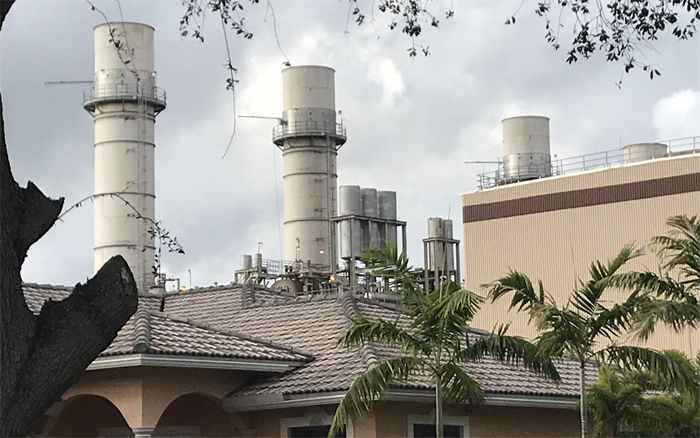The Sierra Club's Environmental Law Program is challenging a gas-burning power plant that Florida’s largest utility (FPL) proposes to build in Dania Beach (near Ft. Lauderdale). The plant would emit approximately 3 to 4 million metric tons of climate-damaging greenhouse gas every year, and operate for approximately forty years. Moreover, the surrounding communities and the plant itself are extremely vulnerable to climate-induced sea level rise. In late July, after an administrative hearing, despite the fact that FPL’s own sea level rise expert admitted that a reasonable estimate of local sea level rise is 2 to 3 feet by 2060--permanently inundating the surrounding community during the life of the plant -- the judge recommended approving the plant. Her recommendation was based, in part, on FPL’s plan to elevate the plant above everyone else in the community.
The Sierra Club filed a brief challenging the recommendation, highlighting the threat of massive climate losses that Southeast Florida faces, which this huge plant and its upstream pipeline and fracking impacts would exacerbate. Notably, the judge recognized that fossil fuel-burning power plants cause climate change, both globally and locally in Southeast Florida, that “every ton of GHGs emitted into the atmosphere contributes to climate change,” that “increas[ing] the rate of climate change . . . in turn, accelerates sea level rise,” and its accompanying “substantial coastal hazards.” She further agreed with Sierra Club that Southeast Florida is especially vulnerable to sea level rise.
In its brief, Sierra Club asserted that, to manage the threat of catastrophic climate losses, the plant should be denied certification, and that at a minimum certification should be conditioned on FPL incorporating common sense measures like solar that can dramatically reduce the climate damages from (and to) the plant.
As the next step, the law requires the governor and his cabinet, sitting as the siting board, to vote on FPL’s application for certification by September 28, 2018.
Now, however, rather than adhere to the deadline, Governor Scott and his administration delayed the decision--and the associated public hearing--until after the election, until the next cabinet meeting on December 4, 2018. FPL agreed to wait. But Sierra Club did not.
Governor Scott has an abysmal record on climate change. He has overseen an enormous fracked gas expansion, including the Sabal Trail pipeline and more than 10 gigawatts of gas-burning power plants. And that has already cost Floridians billions of dollars just to manage the fuel price risk, not to mention the billions more spent on plants, pipelines, and the fuel itself. Florida is hemorrhaging money, and perversely digging itself deeper into one of the country’s worst climate holes.
The Sierra Club sent a letter to Governor Scott and his cabinet objecting to their unlawful delay, emphasizing that all Floridians, but particularly the communities in Southeast Florida who are most directly affected by Dania Beach and sea level rise, are legally entitled to know where he stands on this project before November. To date, the Sierra Club has received no response.
